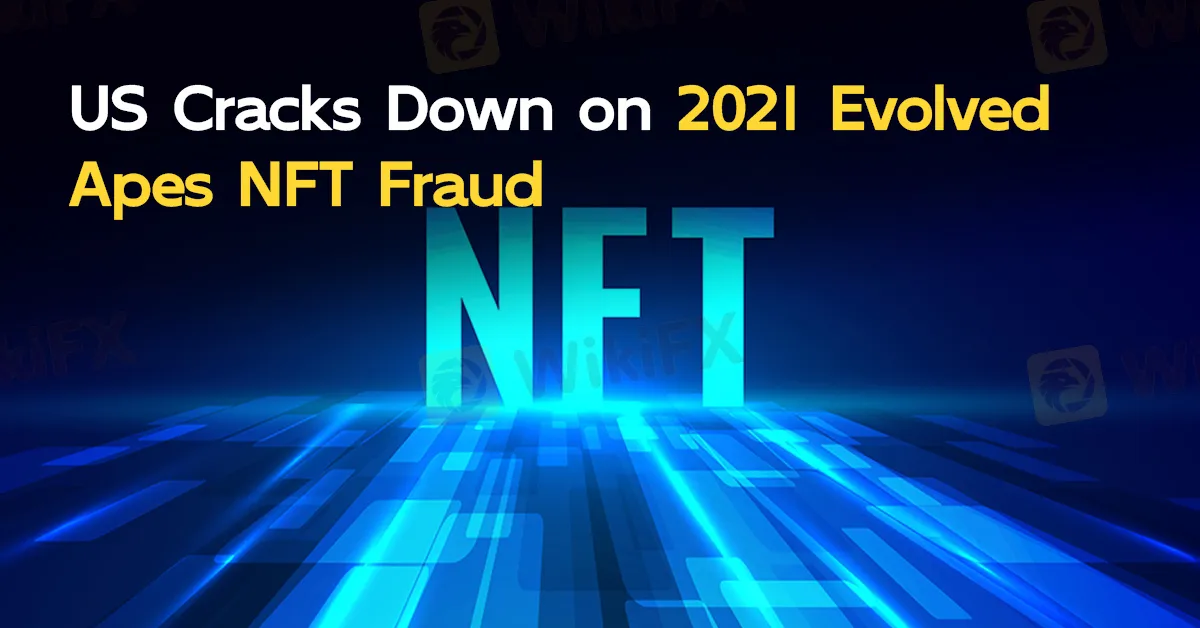简体中文
繁體中文
English
Pусский
日本語
ภาษาไทย
Tiếng Việt
Bahasa Indonesia
Español
हिन्दी
Filippiiniläinen
Français
Deutsch
Português
Türkçe
한국어
العربية
US Cracks Down on 2021 Evolved Apes NFT Fraud
Abstract:The United States Attorney's Office for the Southern District of New York announced today that three individuals have been charged in connection with a non-fungible token (NFT) rugpull from 2021, known as Evolved Apes.

The United States Attorney's Office for the Southern District of New York announced today that three individuals have been charged in connection with a non-fungible token (NFT) rugpull from 2021, known as Evolved Apes.
According to a release from the SDNY's office, Mohamed-Amin Atcha, Mohamed Rilaz Waleedh, and Daood Hassan face charges of wire fraud and money laundering.
Evolved Apes was a collection of 10,000 unique NFTs, promising a video game that never materialized. The anonymous developer, Evil Ape, vanished a week after the project‘s launch, siphoning 798 Ether (equivalent to $3 million today, or $2.7 million at the time) from the project’s funds.
U.S. Attorney Damian Williams indicated that the defendants orchestrated a scheme to inflate the price of digital artwork through false promises about developing a video game. They allegedly took investor funds, never developed the game, and pocketed the proceeds. He emphasized that despite the novelty of digital art, making false promises for money remains illegal.

In the cryptocurrency world, this type of scheme is referred to as a rug pull. It involves developers raising funds from investors through the sale of tokens or NFTs, then abruptly shutting down the project and disappearing with the money.
Digital assets, including cryptocurrencies and NFTs, are particularly susceptible to investment frauds and scams due to their decentralized nature, lack of regulatory oversight, and the anonymity they offer. These factors create an environment where fraudulent actors can operate with relative impunity, exploiting the novelty and complexity of digital assets to mislead investors. Additionally, the rapid growth and high volatility of the market attract both inexperienced investors and malicious entities, making it easier for scams like rug pulls to thrive. The technological sophistication required to understand and navigate this space also leaves many investors vulnerable to deceptive schemes.
According to De.Fi's Rekt database, more than $14.5 billion has been lost to rug pulls since 2011.
The largest rug pull to date involved the South African digital assets investment fund, Africrypt, which absconded with 69,000 bitcoins in 2021, worth nearly $4.8 billion at the time.

Disclaimer:
The views in this article only represent the author's personal views, and do not constitute investment advice on this platform. This platform does not guarantee the accuracy, completeness and timeliness of the information in the article, and will not be liable for any loss caused by the use of or reliance on the information in the article.
Read more

Malaysian Influencer Detained in Taiwan Over Alleged Role in Fraud Scheme
Malaysian influencer Hu Chang Mun, widely known as Ady Hu, has been detained in Taiwan for his alleged involvement in a fraudulent operation. The 31-year-old, who was reported missing earlier in December, was located by Taiwanese authorities after suspicions arose regarding his activities.

Investment Scams in Malaysia: Telegram Tops Scammers’ List
In the first 11 months of 2024, Malaysia recorded 5,685 investment scams, with Telegram emerging as the most commonly used platform for fraudulent activities.

Pros and Cons of Choosing Unregulated Forex Brokers
Discover the pros and cons of unregulated forex brokers, explore risks, benefits, and key features, and learn how to evaluate their credibility with the WikiFX app.

Gigamax Scam: Tracking Key Suspects in RM7 Million Crypto Fraud
Malaysian authorities are actively pursuing seven individuals linked to the Gigamax investment scam, which has defrauded investors of over RM7 million. The suspects include an Indonesian national, identified as Awaludin, who is believed to be the mastermind behind the scheme, and six Malaysians who served as promoters and speakers for the fraudulent operation.
WikiFX Broker
Latest News
Geopolitical Events: What They Are & Their Impact?
Volkswagen agrees deal to avoid Germany plant closures
Top 10 Trading Indicators Every Forex Trader Should Know
WikiEXPO Global Expert Interview: Simone Martin—— Exploring Financial Regulation Change
TradingView Launches Liquidity Analysis Tool DEX Screener
MultiBank Group Wins Big at Traders Fair Hong Kong 2024
'Young investors make investment decisions impulsively to keep up with current trends' FCA Reveals
Why Do You Feel Scared During Trade Execution?
CySEC Settles Compliance Case with Fxview Operator Charlgate Ltd
Scope Markets Review: Trustworthy or Risky?
Currency Calculator


